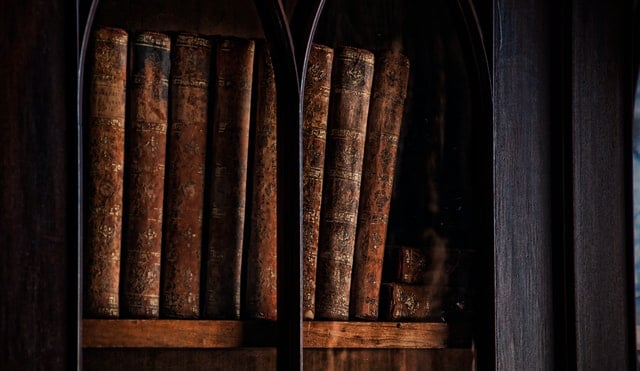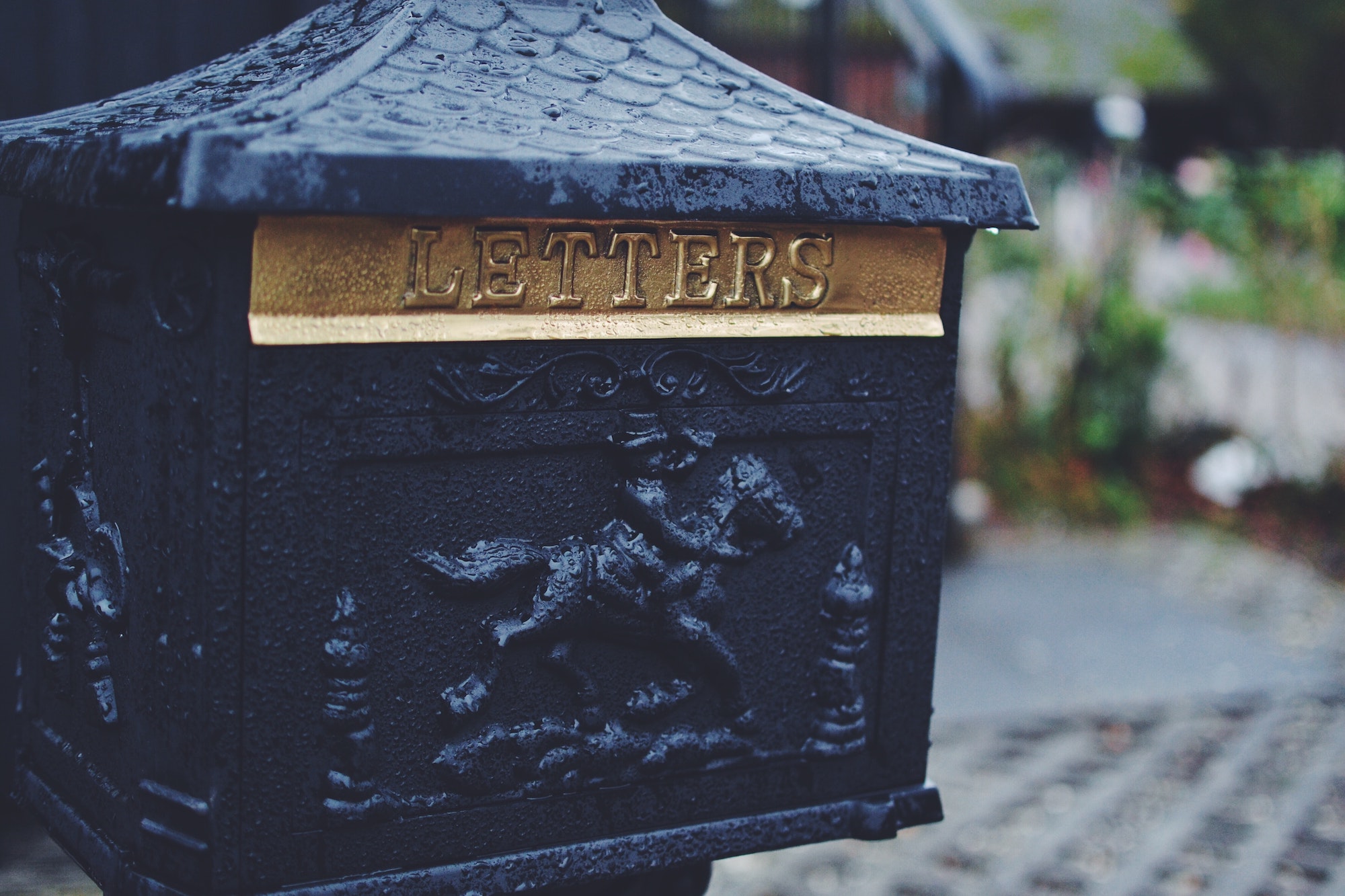
Sir Thomas Browne was a seventeenth-century English polymath who collected books and curiosities. His house and garden were such a ‘paradise and cabinet of rarities’ that visitors came from far and wide to see it. A few years before his death, he made a catalogue, not of his own collection, but of a completely imaginary one: Musæum Clausum (Sealed Museum). And I fell under its spell.
Sir Thomas Browne’s collection
During his lifetime, Sir Thomas Browne was known as a collector of some note. Like many of his contemporaries, he kept a ‘cabinet of curiosities’. It was filled with strange natural objects (naturalia) and human-made artefacts (artificialia) alike. We can get a peek at what he might have kept in his collection from accounts of donations he made to museums and other institutions. In 1669, for instance, he contributed fossil bones to the museum of Gresham College after the college’s own collection of curiosities was destroyed by fire. To the Royal Society in London, he donated a petrified bone, a double egg, a sealed but mysteriously evaporated bottle of Spanish fortified wine, and a black stone from Iceland.
Other hints of the contents of his collection can be found in his letters. These include a lengthy correspondence with Royal Society member Dr. Christopher Merrett, who was writing a natural history of Great Britain and solicited Browne’s expertise. Browne’s responses are erudite and practical, and in the process name many naturalia from his collection. Among these are a tree fungus, a fish two yards long, seals, a pelican, a swordfish head, a needlefish, live curlews, flies, and a sea plant.
A visit by John Evelyn
The only known description of Browne’s collection as a whole comes from the published diaries of John Evelyn, a member of the Royal Society who had previously applied to Browne for advice on a horticultural treatise. In his diary entry for the day of his visit he describes Browne as ‘that famous scholar and physician, Dr. T. Browne, author of the “Religio Medici” and “Vulgar Errors,” now lately knighted.’ Evelyn was very much looking forward to this encounter—having previously corresponded with Browne for some time—and arrived on October 17, 1671.
The visit occurred two days before Browne’s sixty-sixth birthday, so by this time his collection must have already been extensive. Evelyn is effusive in his portrayal, gushing that Browne’s ‘whole house and garden’ was ‘a paradise and cabinet of rarites’. He goes on to enumerate the ‘medals, books, plants, and natural things’, singling out for a mention Browne’s ‘collection of the eggs of all the fowl and birds he could procure’.
It is evident from Evelyn’s account that Browne not only collected the objects in question, but also possessed extensive knowledge about them. His impressive assortment of eggs, for example, did not consist of mysterious specimens brought from far-off lands; rather they were the eggs of ‘cranes, storks, eagles, and a variety of waterfowl’ endemic to Browne’s own corner of Norfolk. In fact, Browne seems to have struck Evelyn as a sort of expert regarding the local. He took his visitor on a tour of all the notable spots in the city. Evelyn left as impressed by the depth and breadth of his host’s knowledge as the cathedral, palace, and other sites themselves, which seemed to form almost an extension to his host’s impressive cabinet of curiosities.
The Musæum Clausum
Sir Thomas Browne wrote several books. One of his final completed works was a little pamphlet entitled Musæum Clausum OR, Bibliotheca Abscondita: Containing Some Remarkable Books, Antiquities, Pictures and Rarities of Several Kinds, Scarce or Never Seen by Any Man Now Living.
It was not a description of his own possessions; instead, it described a totally imaginary library and collection. In Browne’s fictional cabinet ‘A Moon Piece, describing that notable Battel between Axalla, General of Tamerlane, and Camares the Persian, fought by the light of the Moon’ might hang above ‘A large Ostridges Egg, whereon is neatly and fully wrought that famous Battel of Alcazar, in which three kings lost their lives’. Next to them on the bookshelf one might find ‘Some pieces of Julius Scaliger, which he complains to have been stoln from him, sold to the Bishop of Mende in Languedock, and afterward taken away and sold in the Civil Wars under the Duke of Rohan’.
The stories layer within themselves like tales from The Thousand and One Nights.
A Melancholy Joke
The Musæum Clausum is perhaps a subtle laugh at himself and others of his ilk: the collectors, the explainers, the contemporary intelligentsia. Is this the cynical reflection of a man who realises that his hard-won knowledge and its physical embodiment in his own personal ‘paradise and cabinet of rarites’ might all be just a bit much? Does he grow old, like Prufrock, feeling ‘Full of high sentence, but a bit obtuse; At times, indeed, almost ridiculous—Almost, at times, the Fool’ . . . ? The text has more than a whiff of this; somehow laughing and weeping all at once. Browne, in composing this satirical piece, may be acting as a fool indeed, but a wise one. A sort of Shakespearean fool.
For this catalogue of lost, forgotten, mislaid, stolen, fragmentary artefacts is more than humorous. It is also a catalog of loss, fragmentation, forgetfulness. Mixed in among the fantastical, the ridiculous, the false, are echoes of a longing for truths obscured, destroyed, or effaced by time. Lost works by Cicero. An obliquely layered reference to ‘an old library at Alexandria’. And (by profession Browne was a doctor) ‘A Commentary of Galen upon the Plague of Athens described by Thucydides’.
Amongst the jokes in Musæum Clausum one detects a tinge of something like Winston Churchill’s enchanted pathos about the legends of King Arthur: ‘It is all true, or it ought to be; and more and better besides’. This is the gentle mockery of a mind that longs to see the ultimate fruition of a quest like the Royal Society’s for universal knowledge. Still, he seems to feel it will never come to pass; that portions will always remain irrevocably unreachable or lost. Read thus, Musæum Clausum is a pointed satire on collecting and the project of universal knowledge. But it is also a shout into the dark–a wistful wish to reclaim the dream. I think of it as a sort of tragic love-letter to lost libraries, museums, and cultural treasures everywhere.
Lost Libraries
Like any proper bibliophile, I grew up mourning the loss of the great Library of Alexandria. Perhaps this sense of desolation is at the heart of all historiography: the desire to somehow reconstruct the unreachable past, and make it live again, whole, in the present. Every historian knows that the goal of history is in the end an impossible one. What has been is gone, and only a pale interpretation, perforce imperfect, can ever rise out of our attempts to reconstruct it. Maybe that’s why I turned to writing novels.
Like Browne, we persist in the hopeless pursuit of the impossible, the unknowable, with the wry understanding that we will inevitably get much wrong, that many things are beyond our reach forever. Libraries, museums, and the fictions we weave about them hold a shadow of that loss. They are an acknowledgement of forgetfulness, while at the same time embodying a movement against it. When we place anything precious within them, it is to say, this: this alone have we saved from the abyss.

Read More
You can see my booklist, ‘Lost Libraries’ on Bookshelf, and buy them at your local Indie.
(I also get a small affiliate commission)
Sarah Bringhurst Familia
I sit in cosy cafés on the canals of Amsterdam writing books. I also do writing workshops, provide copy editing services and create beautiful WordPress websites for authors. Need help? Contact me!

Would you like to read more?
Join my newsletter for ARC and Beta Reader opportunities, research tips, and exclusive updates.
Carefully curated, occasionally sent.

